Shocked | Someone smuggled Japanese "radiation seafood" and sold it to China with a case value of 230 million.
CCTV News:Qingdao Customs announced yesterday (21st) a major seafood smuggling case that was seized not long ago. In the past two years, professional smuggling gangs that purchase from abroad, smuggle around customs and sell in China have smuggled more than 5,000 tons of high-grade seafood such as king crabs, with a case value as high as 230 million yuan.
More than 5,000 tons of smuggled seafood are sold in China.
At the beginning of this year, the anti-smuggling personnel of Yantai Branch of Qingdao Customs Anti-smuggling Bureau found in market research that the retail prices of some high-end seafood in the market were obviously lower than the normal import prices, which attracted the attention of the anti-smuggling personnel of the customs.
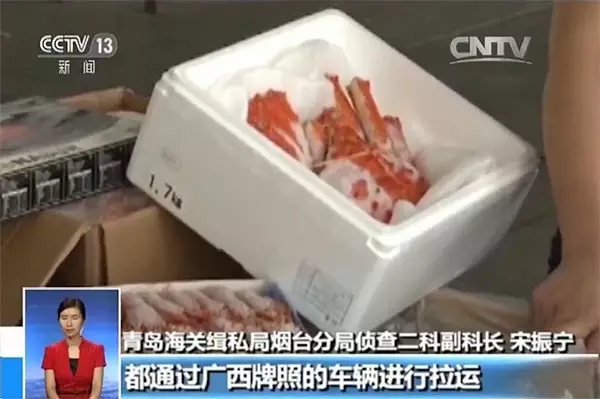
Song Zhenning, deputy section chief of Investigation Section II of Yantai Branch of Qingdao Customs Anti-smuggling Bureau, said that during the investigation, the customs found that a large number of shrimps, king crabs and some fish were transported by Guangxi licensed vehicles. "We feel that products originating in Japan, Russia and the United States come from Guangxi. Certainly not in line with normal logic. "
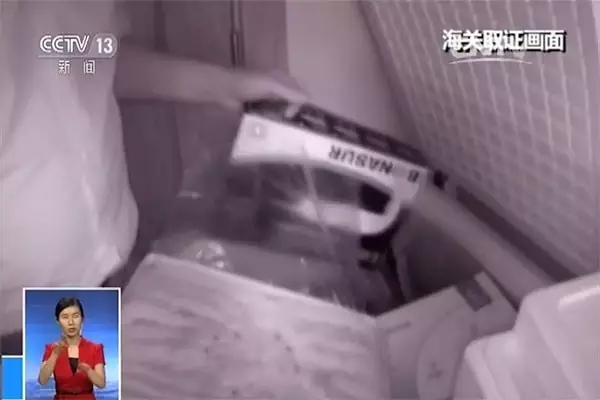
In the process of further investigation, a seafood import and export company in Shandong gradually surfaced. This company not only has several branches in Shandong, Fujian, Guangxi and Liaoning, but also has a company in the United States by the boss behind the scenes, Wang.
230 million smuggled seafood case solved
Li Fudong, the investigation department of Qingdao Customs Anti-smuggling Bureau, said that in order to escape the blow, Wang, the boss behind the scenes, was in the United States all the year round, and all external contacts were made through this American company. After receiving the payment, domestic companies quickly transferred the money overseas through underground banks.
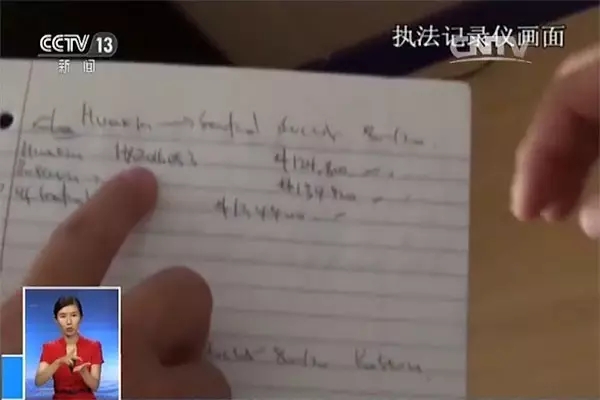
This company not only has no account information in China, but also regularly destroys some documentary evidence of goods ordered, which brings great resistance to investigators. Until the end of June this year, investigators learned that Wang, the controller of the company, would return to China from the United States, and the customs anti-smuggling personnel felt that the best time to close the net had arrived.
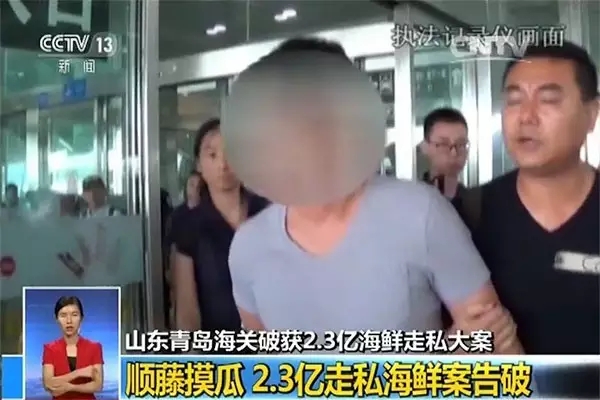
On June 24th, at Penglai International Airport, Wang was arrested as soon as he got off the plane. At the same time, the customs anti-smuggling department simultaneously arrested other people involved in the case in Shandong, Fujian, Guangxi, Shenyang and other places. Through the verification of relevant account books and documentary evidence, it was confirmed that this professional smuggling gang, which purchased from abroad, smuggled around customs and sold in China, smuggled more than 5,000 tons of high-end seafood such as king crabs in the past two years, with a case value as high as 230 million.
Some smuggled seafood is produced in Fukushima, Japan.
Customs anti-smuggling personnel found that these seafood bypassed Vietnam not only to avoid national taxes, but also to avoid inspection and quarantine, because some of these high-end seafood were produced in the waters near Fukushima, Japan.
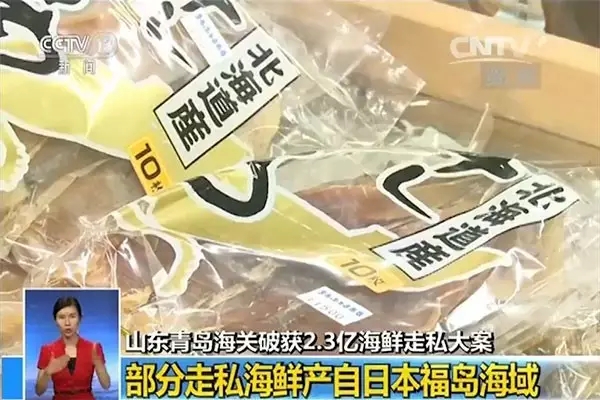
Since the "March 11th" earthquake in Japan in 2011, the seafood produced in the sea near Fukushima, Japan has been polluted by nuclear radiation. Almost all countries have banned the import of seafood produced in this area, and even local people do not eat these seafood, which has caused the price of high-end seafood in the sea near Fukushima to fall to the bottom.
According to professionals, in 2011, the General Administration of Quality Supervision, Inspection and Quarantine issued Announcement No.44 prohibiting the import of food, edible agricultural products and feed from 12 counties including Fukushima, Gunma and Tochigi in Japan’s nuclear leakage areas.
Criminals "dress up" seafood overseas and transport it to China.
Although the whole cold chain transportation has increased the cost of imported seafood, smugglers still have a large profit margin in the face of low-priced seafood. In order to escape the blow, smugglers also changed the packaging of these problem seafood abroad, even changed the production date, and then traveled thousands of kilometers to sell it in China.
Li Fudong said that the smugglers concentrated the goods in Hokkaido, Japan, and then transported them to Fangchenggang, Vietnam, and then from Fangchenggang to Shandong. The most important reason why Wan Li is so far away is to avoid inspection.
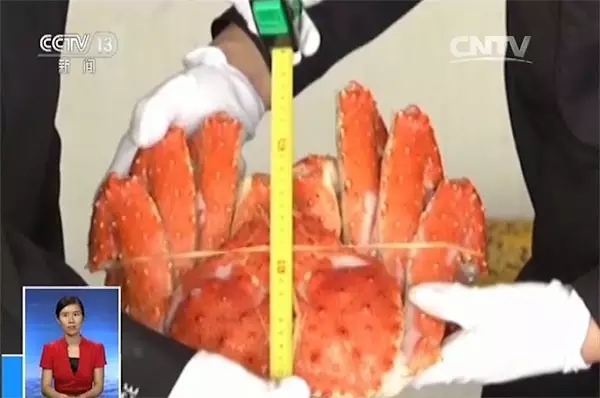
Qingdao Customs cut off the smuggling chain in time, preventing these seafood problems from continuing to infringe on the table safety of our people. Since the beginning of this year, China’s customs has continued to carry out the "Guomen Sword 2016" campaign, which has cracked down on five categories of smuggling crimes, including frozen aquatic products, frozen meat, rice and corn.